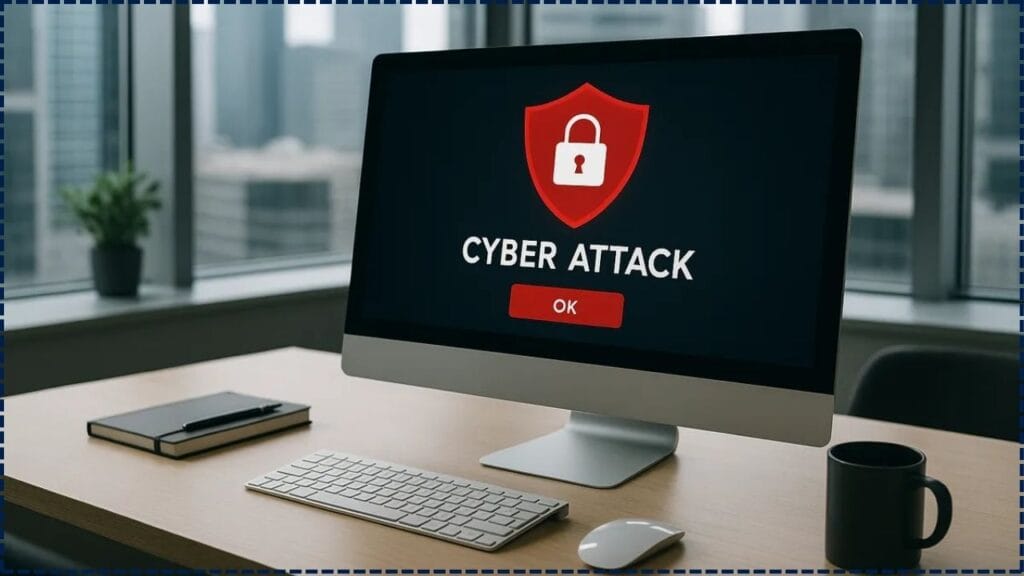In September 2024, Lafayette Federal Credit Union (LFCU)—a trusted financial institution serving thousands of members in the D.C. area and beyond—suffered a cybersecurity breach that potentially compromised the private data of over 75,000 individuals. From Social Security numbers to driver’s licenses, critical personal information was exposed. If you bank with LFCU or recently received a data breach notice, this concerns you directly.

The breach, now the subject of multiple class action lawsuits, wasn’t made public until early 2025—months after the unauthorized access was discovered. Now experts are warning: check if your info was leaked, take steps to secure your identity, and see if you’re eligible to claim compensation.
Lafayette Credit Union Hit by Cyberattack
| Item | Details |
|---|---|
| Credit Union | Lafayette Federal Credit Union (LFCU) |
| Headquarters | Rockville, Maryland |
| Date of Breach | September 16, 2024 |
| Date Detected | February 5, 2025 |
| Notification Sent | March 20, 2025 |
| Number of Victims | 75,545 individuals |
| Data Exposed | Full names, Social Security numbers, financial account numbers, driver’s license info, government-issued ID numbers |
| Credit Monitoring Provided | 12 months of free access to Experian IdentityWorks Credit 3B |
| Lawsuits Filed | At least two class action lawsuits as of June 2025 (CU Today) |
| Website for Official Info | www.lfcu.org |
This recent data breach, specifically the deeply concerning incident involving the Lafayette Federal Credit Union, is far more than just a technical glitch or a complex cybersecurity puzzle. At its core, it is a profound people issue, striking at the very heart of our personal security and trust in financial institutions.
Your private data—the intricate mosaic of your identity, the sensitive details of your finances, and the fundamental peace of mind that comes with knowing your information is safe—should be safeguarded with the utmost diligence, treated with the same reverence and protection as precious gold. This incident serves as a stark and urgent wake-up call, not only to the entire financial industry, compelling a re-evaluation of their security protocols, but also to every everyday consumer who places their hard-earned money and personal information within these systems.

What Happened?
Let’s unpack it in everyday terms. In September 2024, hackers got into an employee’s email account at LFCU. That may not sound major, but it’s a big deal—because those emails held sensitive info. Things like Social Security numbers, bank details, and ID numbers. And nobody noticed it for five months.
According to Strauss Borrelli PLLC, LFCU confirmed that the unauthorized access lasted long enough to expose highly confidential data, potentially affecting tens of thousands of customers. This wasn’t a ransomware attack. It was worse in some ways: a long-term breach that flew under the radar.
How Was It Discovered?
On February 5, 2025, LFCU’s security team flagged the suspicious access. They locked the affected accounts and launched a forensic investigation with third-party cybersecurity experts. By March 20, letters began landing in mailboxes, notifying affected individuals.
But here’s the kicker: it took over 150 days to detect. During that time, criminals may have already used or sold your info on the dark web.
What Was Compromised?
The breach wasn’t just names and phone numbers. It hit a deeper level:
- Full names
- Social Security Numbers
- Driver’s license numbers
- Bank account details
- Email addresses
- Government ID data
This kind of information is a gold mine for identity thieves. With just a few of those pieces, they can:
- Open credit cards
- Apply for loans
- File false tax returns
- Access your existing financial accounts
Who’s Affected?
If you received a notification letter or email from LFCU in March 2025, you’re on the list. Even if you haven’t received one, but you banked with Lafayette between 2020–2024, you should proactively contact the credit union and ask.
Don’t assume you’re safe just because you haven’t been contacted. Sometimes notification letters are delayed or lost in the mail. Better to be safe than sorry.
Legal Fallout – Class Action Lawsuits Begin
As of June 2025, at least two class action lawsuits have been filed. The suits claim that LFCU:
- Failed to encrypt personal information
- Waited too long to notify affected customers
- Did not comply with best practices or data protection standards
According to CU Today, plaintiffs are demanding compensation for:
- Time spent monitoring and securing accounts
- Identity theft damages
- Out-of-pocket expenses
- Emotional stress and fear of future misuse
If you were affected, you might be eligible to join.
Lafayette Credit Union Hit by Cyberattack Protect Yourself Now
Let’s get real: even if you haven’t noticed strange activity, you could still be a target. Here’s a simple guide for protecting your identity:
1. Sign up for Credit Monitoring
LFCU is offering 1 year of Experian IdentityWorks Credit 3B free of charge. Don’t skip this. It alerts you if your credit is pulled or new accounts open in your name.
2. Review Your Credit Reports
Go to AnnualCreditReport.com to pull your free credit reports from Equifax, Experian, and TransUnion. Look for anything sketchy—new accounts, wrong addresses, etc.
3. Place a Fraud Alert or Freeze
A fraud alert lets lenders know to verify your identity before issuing credit. A credit freeze locks down your credit completely.
- Equifax
- Experian
- TransUnion
4. File an Identity Theft Report (If Needed)
Go to the FTC’s IdentityTheft.gov site to create a recovery plan if your identity is stolen.
What Experts Say
“When a financial institution holds data this sensitive, it has a duty to encrypt and monitor access in real-time,” says Dr. Maria Henson, cybersecurity expert and consultant for financial compliance firms. “Five months to detect a breach is simply too long. Regulators will likely be reviewing this incident closely.”
Related Links
Retire Wealthy? These 3 Vanguard ETFs Might Be All You Need to Get There
Turn $1,500 Into Steady Income: These High-Yield Nasdaq Stocks Are Built for Growth
Solar Power Breakthrough: Kesterite Hits 13.2% Efficiency, Surpassing Silicon And Perovskite
What Victims Are Saying
Troy B., 34, from Maryland:
“I never thought something like this could happen to my credit union. I’ve trusted them for years. Now I’m getting random emails and weird credit card pre-approvals. It’s scary.”
Lisa M., 52, from Virginia:
“I got the letter two weeks after someone tried to open a store credit account in my name. I’m stressed, but I signed up for the monitoring. I’m watching everything now.”
FAQs
Q: What is Experian IdentityWorks Credit 3B?
A: It’s a premium identity protection service that tracks your credit across all 3 major bureaus and alerts you to fraud.
Q: Can I sue LFCU myself?
A: You may be able to join a class action suit or file an individual claim depending on your damages. Always consult a consumer protection attorney.
Q: What if I didn’t get a letter?
A: If you were an LFCU member from 2020–2024, reach out to them directly. Also, check your credit and place a fraud alert just in case.
Q: Is this the first time LFCU has had a breach?
A: As of 2025, this is the first publicly known breach at this scale. However, it’s prompted a full review of their cybersecurity systems.









